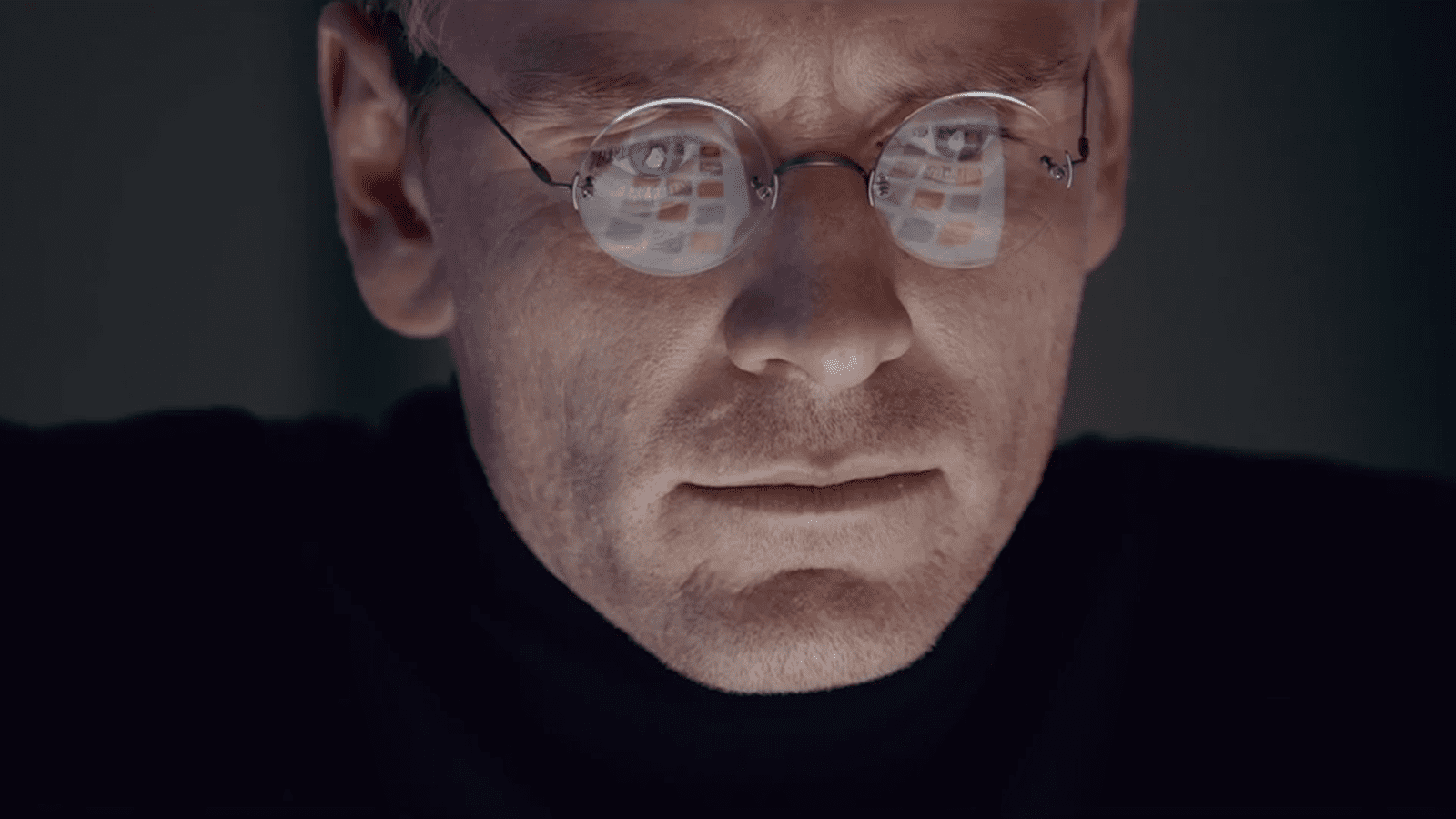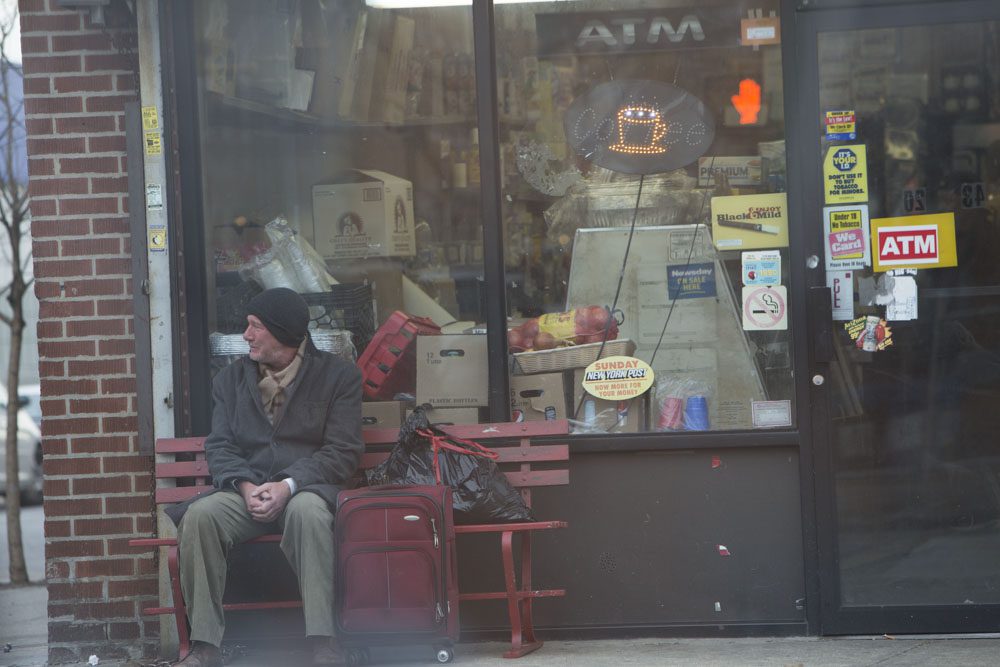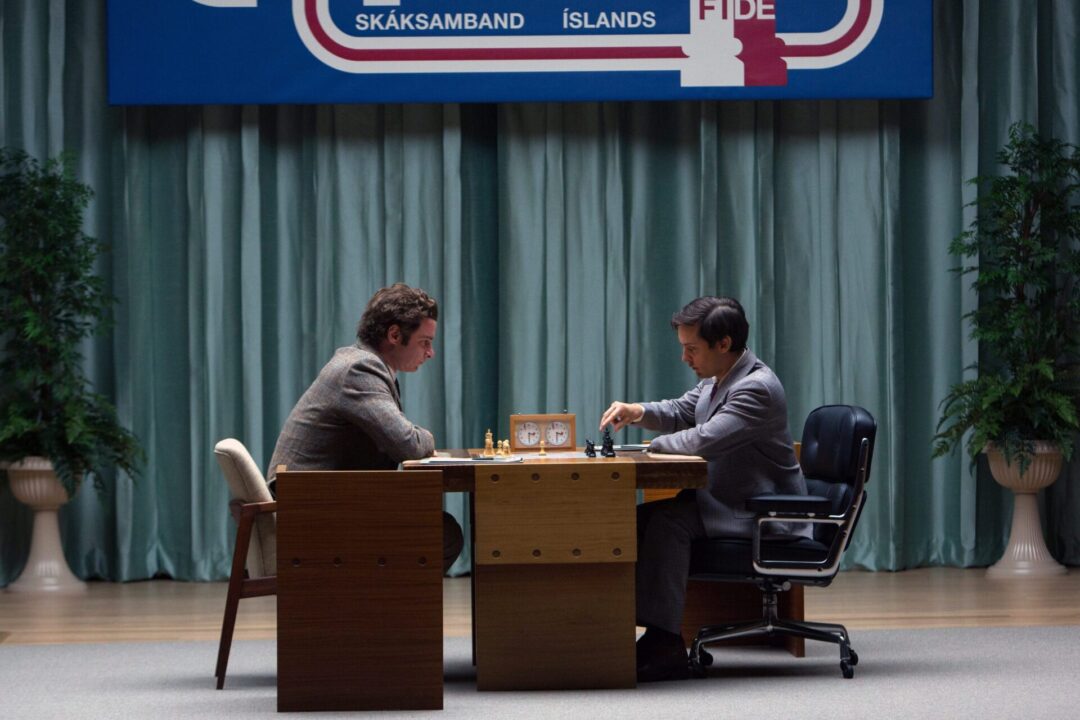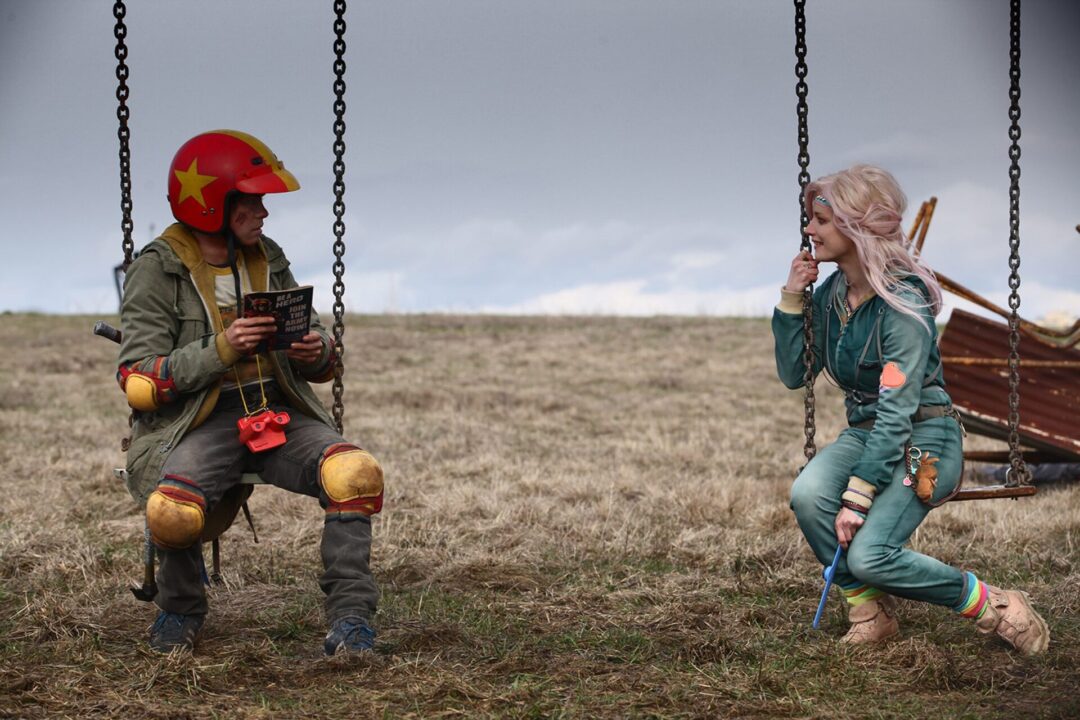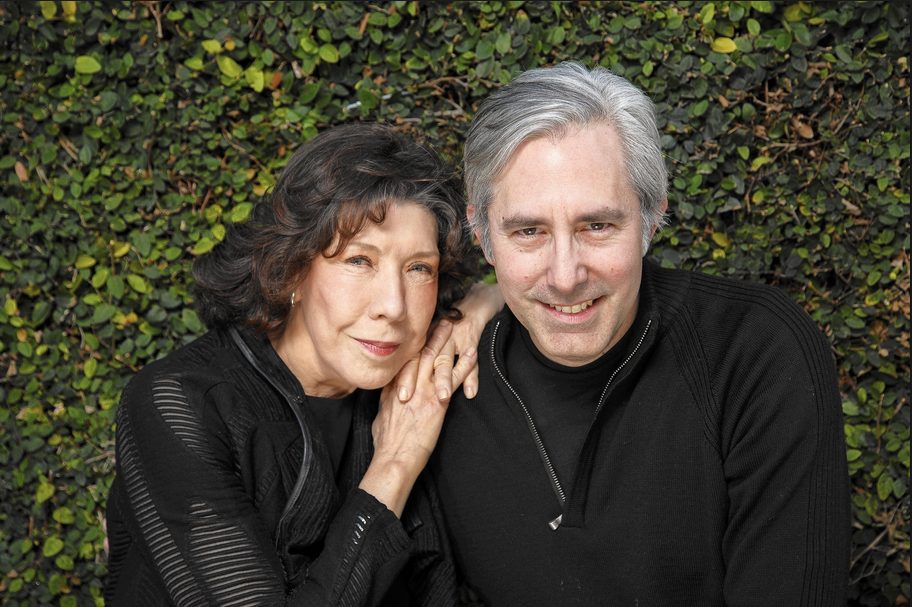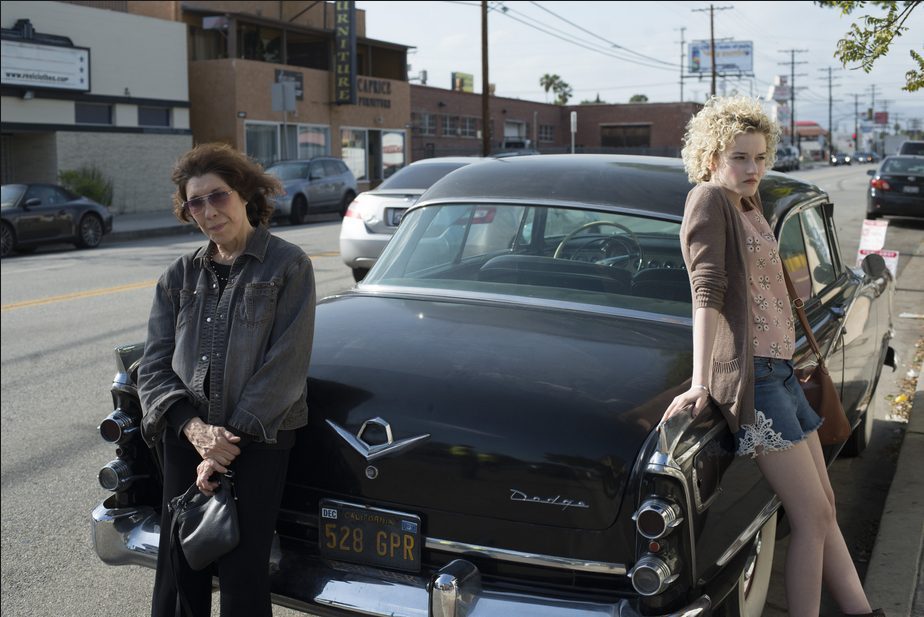Review: 'Steve Jobs'
The word ‘auteur’ is generally used to describe a director whose vision is clear enough to be recognizable. The great directors all fit into this category, but most screenwriters tend to play a more anonymous role. The exception is Aaron Sorkin, a screenwriter whose hyper-speed style and wall-to-wall dialogue is immediately recognizable in the best way possible. Five years ago, he won an Oscar for his unprecedented script on modern classic The Social Network. Although not working with Network’s director David Fincher, a similarly matched level of energy and bold protagonist dares his next project, Steve Jobs, to stand confidently alongside his other award winning work.
In the case of both films, Sorkin’s writing is met with a director whose style is equally vibrant. Job’s Danny Boyle may not have the fanboy following that Fincher has gathered, but from the film’s first moments there is little doubt that this is a “Danny Boyle” film. Boyle utilizes a vibrant array of images, quickly maneuvers between subjects, and manages to feel both macro and micro scale. Boyle has a few tricks up his sleeve as well that add a refreshing enough touch to make the film feel alive. The hybrid of writer from Social Network and director of Slumdog Millionaire and 127 Hours feels like a beautifully matched synthesis.
Because of the similarities to predecessor 'The Social Network', 'Steve Jobs' may not feel as enigmatic or fresh as the former film, but it’s entertainment and gripping narrative are enough to make it a must-see in its own right.
Perhaps the most daring element of this biography is, rather than telling the entire lifespan like a conventional biopic, the egomaniac genius of Jobs is distilled into three different chapters, each from different stages of his career. The film wastes no time trying to tell us information that we already know: it is entirely focused on the relationships Jobs had with his closest confidantes. Some fantastic decisions are made to distinguish each chapter, the most prominent being the decision to shoot using three different eras of cameras/film to match the progression of technology. Just one of many unique decisions that result in a more dynamic film.
Michael Fassbender, easily one of the greatest working actors we have today, tackles the character of Steve Jobs from the immediate get-go. He never feels disguised as the character, but instead embodies the classic approach where he is still very much himself within the spectrum of this incredible character. As is the case with nearly every element of the film, the ensemble of performers all show-up and deliver knockouts. Supporting cast members Kate Winslet, Seth Rogen, Michael Stulhbarg, and Jeff Daniels each get opportunities to deliver feisty discourse with Fassbender’s Jobs, and each is equally compelling. Since the triptych structure of the film allows for a very clear progression of character’s relationships, the arcs are more easily recognizable, but nonetheless well executed.
Because of the similarities to predecessor The Social Network, Steve Jobs may not feel as enigmatic or fresh as the former film, but it’s entertainment and gripping narrative are enough to make it a must-see in its own right. It is firing on all cylinders and captures the man behind so much of today’s world in a delectable manner. Because of the conscious decision to not cover the entire lifespan of Steve Jobs, but instead explore a series of dramatic relationships he had, the film is one that can stand beautifully beside Walter Isaacson’s book in that it only makes you want to learn more about the man instead of trying to encapsulate everything about him. Few influencers were as complex as Steve Jobs, and he is fortunate to have a film that does justice to the fascinatingly complex individual he is. For the numerous reasons listed above, Steve Jobs, a film equally attributed to Danny Boyle, Aaron Sorkin, and Michael Fassbender, is one of the must-see films of the year.
Steve Jobs opens Friday at the Landmark Theatre followed by a national rollout October 16th.
https://www.youtube.com/watch?t=1&v=aEr6K1bwIVs
Review: 'Time Out of Mind'
As a writer and director, Oren Moverman has remained a quiet yet essential contributor to the prestige dramatic film. His Oscar nominated turn for The Messenger and this year’s evocative work on Love and Mercy are two prominent examples of his craftsmanship. His latest film, Time Out of Mind, flew under the radar at Toronto last year and is now receiving a small theatrical release.
Richard Gere plays George, a homeless man falling under the usual parameters. When we meet him, he is sleeping in the bathtub of an apartment where the tenant has been evicted. The film’s style parallels the homeless experience: it isn’t driven by ever-changing drama, instead it unfolds at a slow and occasionally monotonous pace. As a director, Moverman is deliberate with his camera work, choosing to shoot a major percentage of the movie through glass or other obscurities looking at George, further establishing him as an “other” and the audience as outsiders looking at the homeless lifestyle. He favors longer camera setups and only cuts when he has to. The result is mixed: sometimes this works extremely well at capturing the essence, other times it heads more towards tedium. In the final shot of the film, this technique pays off like never before.
Moverman is deliberate with his camera work, choosing to shoot a major percentage of the movie through glass or other obscurities looking at George, further establishing him as an “other” and the audience as outsiders looking at the homeless lifestyle.
Richard Gere is a hard sell as a homeless man: his strikingly handsome visage doesn’t appear to be weathered by the streets. At times, this is addressed: a social worker asks how a handsome man like him doesn’t have a spouse. Ultimately, little effort is made to establish how his clean-cut nature ended up amongst the more battered homeless population. At one point, Gere’s character wakes up on the streets without a shirt on, and looks as if he is getting out of bed like the way any man does every morning. Actors playing against type are a pleasure to watch: in this case, it doesn’t quite stick the landing.
Moverman’s treatment of the subject is never degrading or attempting to be a savoir toward the underlying homeless population. The decision to take place in the spring instead of the winter fortunately avoids the usual convention of the homeless person freezing during a blizzard: the homeless population struggles to find a place to sleep in all four seasons. In short, he treats the subject with respect and recognition that this individual film does not encapsulate the entire population’s experience.
Time Out of Mind may be a film that parallels its protagonist: it becomes lost and anonymous amidst the more flashy crowd. It does represent a filmmaker whose craft is actively working and still awaits a definitive project. In the mean while, I will remain intrigued to see what Moverman writes and directs next: there is a masterstroke still on the way.
Time Out of Mind is now playing at the Landmark Theatre.
https://www.youtube.com/watch?v=rkDsYjuyZxQ
Review: 'Pawn Sacrifice'
A story loosely known to the general public but with details no longer widely known, American chess master Bobby Fischer served as one of the many pieces in the half century duel between the US and Soviet Union. In the latest film from Edward Zwick (Glory, The Last Samurai), Tobey Maguire plays the troubled yet brilliant chess player whose every moment revolved around one of the world’s most complicated and fascinating games.
Traditionally chess has widely been treated as a sport, with the same level of complex battles as an intellectual tennis match. In viewing this as a sports film, one of the most essential elements is giving the audience enough information about the game being played so they can keep up. It’s as simple as a referee voiceover or a glance at the scoreboard. Obviously, every sport will have its own way of showing the audience what is happening. Chess is a game that takes a minute to learn and a lifetime to master. Despite the potential for gripping battles between Fischer and his opponent, Boris Spassky (Liev Schreiber), no effort is made to keep the audience in the loop on what is going on.
Despite the potential for gripping battles between Fischer and his opponent, Boris Spassky (Liev Schreiber), no effort is made to keep the audience in the loop on what is going on.
For a movie that revolves entirely around the game, this is the ultimate downfall: in every chess match scattered throughout the movie, the audience is left completely cold as for who is winning or what is happening, instead left to rely on sets of actors with intense expressions to achieve suspense. This issue cannot be overstated, as it makes a film that could be enthralling turn tedious and alienating.
There are plenty of notes to be made about the casting and technical elements, but ultimately nothing can overcome this major error. Cinematography from rising talent Bradford Young looks terrific, with stunning imagery of both Iceland and Los Angeles (where it rained more times in this movie that it has this year).Tobey Maguire puts on a very intense performance tapping into a character whose brilliance omitted standard social cues. Ultimately, the entire look and feel of the film, including a top-tier cast, has the essence of a prestige motion picture, but without the element that would allow the audience to engage, this is a hollow and dispensable film.
Pawn Sacrifice is in select theaters Wednesday, September 16th.
https://www.youtube.com/watch?v=YpHXBKvmmKo
Review: 'Turbo Kid'
The most critical element of telling a story that isn’t grounded in everyday reality is to clearly establish the rules of the world we are entering. Let Turbo Kid, a nostalgic sci-fi movie set in a dystopian 1997, be the textbook example of how to do this well. This is not a moody apocalyptic slog, or even an attempt to paint the future as some sort of warning of our current state. This is a campy, gory, comical, self-aware thrill ride that embraces movies as a way to have an absolute blast for 90 minutes.
The story itself is pretty standard stuff. A lone, heroic kid takes down the forces of evil. It’s the execution, and the intentional absurdity, that make this such a worthwhile journey. The attention to detail here is impeccable, utilizing all kinds of goofy elements, and many nostalgic insertions, to get the point across. A heroine is introduced in the form of Apple (Laurence LaBoeuf), and her zaniness is something I was fully prepared to be irritated by, but instead manages to be endearing and fun. The villain, Zeus (Michael Ironside) is just as fun, self aware pure evil. With both of these characters, there is more than meets the eye, more to be revealed, and a journey ahead of us.
Turbo Kid is not a mainstream crowd pleaser, it’s a cult movie fan’s dream wrapped up in a brand new package.
For as much as I mentioned the overall story is straightforward, the film has its fair share of twists and unexpected turns, many of which riskily pay off. These are the types of decisions only seen in an independent film not clouded by what they think an audience can digest. And on that note, it’s an absolute gorefest in the best way possible, with plenty of bloody violence that manages to be funny because of how it’s established. As someone who normally finds comic violence deplorable, here is the rare anomaly that manages to land well.
The film played as a midnight movie at Sundance, and is already on its way to becoming the first major attempt at a cult movie in a while. The first sign of a midnight movie is its potential for audience involvement. First, the cosplay potential here is the no-brainer. I saw the film at during Sundance NextFest, and the audience embraced the fact that the film had 17 (count ‘em, 17) production companies listed before the movie began! Not much more can show how independent or grassroots a film is. How awesome is it than an audience can embrace this with a fun tradition in the making? If you see it in a theater, be sure to pass this along.
Turbo Kid is not a mainstream crowd pleaser, it’s a cult movie fan’s dream wrapped up in a brand new package. If this seems like your cup of tea you will love it. If it isn’t, then you may still find value in it regardless.
Turbo Kid opens in select theaters this Friday.
https://www.youtube.com/watch?v=AFlZ6pVtnv0
Review: 'We Come As Friends'
This will be the first film I have reviewed for Cinemacy that I have seen two times before writing a review: first I saw this documentary at the world premiere at Sundance back in January of 2014. Over a year and a half later, I found the film captivating enough that it merited a second viewing, and attended a screening held by LA World Affairs Council leading up to its local release on August 21. With the luxury of having two viewings, here are my thoughts.
Documentaries on social or global issues tend to fall into the trap of emphasizing information in the most conventional way possible instead of using cinematic tools the way narrative filmmakers do to paint the picture. We Come As Friends may be the first documentary film I have seen to entirely emphasize the latter. Opening with a shot of ants crawling on sand amidst a toy airplane, it’s clear that this is going to be a different type of film.
South Sudan is the world’s youngest independent country, and it achieved independence after years of struggle against its Northern neighbor. Now the new country is in a chaotic state without the establishments developed countries take for granted. The result is that a slew of outside forces are intervening with the country to try and make it right in their eyes, each with their own agenda. The title “We Come As Friends” is a reference to these outsiders interference that has had massive consequence on the country, and an allusion to the phrase used to greet aliens in classic science fiction.
Because the results are more thought-provoking and impressionable than a more conventional depiction, I find this to be a worthwhile tradeoff.
Director Hubert Sauper built a tiny airplane to travel from France to South Sudan, as it is challenging to travel through the country any other way. The plane, fittingly named “Sputnik,” was designed specifically for this project. In early aerial shots from the plane, Sauper chooses to film the country upside down, implying that this is a foreign planet. The metaphor of alien invasion is pertinent through the film, as all these invaders seem to treat South Sudan not as a fellow country, but as the colonialists did: a foreign place incapable of independent survival.
Who are these others? The bulk of the runtime is dedicated toward showing all the different intruders and their range of alarming actions: Chinese oil riggers, American Jesus missionaries, Dutch guards, bomb diffusers, and land developers from all over the world. These characters each paint strokes of unnerving reality: every single one is blatantly exploiting the people and the resources of this country. Perhaps what is so insidious is that everyone appears to be happy and thinks they are doing what is right, but what is right for other countries is clearly not what is going to benefit South Sudan. In one sequence, a businessman is cutting the ribbon on a new power plant and shouts to the crowd, “We bringing you light!” as a self-glorifying charitable act. Over and over these foreigners think that they are doing what is best for the country without even giving the people of this country a seat at the table.
Some of the image metaphors are subtle. A quick shot of the Christian family sharing pictures of their house construction shows an image of the house foundation that eerily resembles a cemetery. During a celebration of independence, all of the foreign guards and UN workers are partying, while right next to them are a black South Sudanese waitress and janitor, working. None is more blatant than a Christian American woman trying to put white socks onto a naked toddler’s feet to “help” the child as he cries loudly, not wanting this at all. As I mentioned, because of the vérité artistic style that shows instead of tells, some of these subtle decisions are easy to miss, but the message of neo-colonialism could not be any louder.
Traditional documentaries choose to have crisp sound design for interviews or important moments so that the audience won’t miss a beat. In this film, the sound is often a barrage of background noise: televisions or loudspeakers are often in the background, crowds are never muted, machinery runs at full volume, and yet the film carries on. Not only does this reflect the reality, but it aids the audience to feel just how much of a sensory overload that these exploiting invaders are causing on the indigenous people.
This is an important documentary because South Sudan is a country that the US media has chosen is not worth their time to cover. While most of the footage is now at least 3 years old, the situation has only worsened. Not only is the impact of the film important, but from a documentary filmmaking standpoint, this is one of the bravest and most unique cinematic entries I have encountered. The film does not give an answer as to what to do next. Because of the vérité style, the film doesn’t have the structure often seen as essential. In this way, it mirrors the chaotic and multi-directional challenges that face South Sudan presently. We Come As Friends bears more resemblance to an art piece than to a call to action, which in some ways may be exploiting the country as a means for creating art. A film this radically unconventional runs that risk. Because the results are more thought-provoking and impressionable than a more conventional depiction, I find this to be a worthwhile tradeoff. We Come As Friends is challenging, exhausting, and overall an incredible cinematic experience with stories that otherwise would be ignored. See it as soon as you can.
http://www.wecomeasfriends.com/us/screenings/
We Come As Friends opens at the Laemmle Royal in Los Angeles today.
https://www.youtube.com/watch?v=E0MgQLk2OCQ
Lily Tomlin, Sam Elliott & Director Paul Weitz on 'Grandma'
Last Friday I joined a slew of LA critics at the London Hotel in West Hollywood for a press interview for Grandma– see my review here. Writer/Director Paul Weitz, Lily Tomlin, and Sam Elliott participated in a press conference and answered some questions. We begin:
What conversations did you have prior to filming regarding the romantic relationship between Judy Greer and Lily Tomlin?
Paul Weitz (PW): A lot. I wrote this script with Lily’s voice in it and I didn’t tell her… I asked her to lunch and kind of sprung this on her and asked if she’d read it. I felt that this movie was going to be important to Lily that everything be understandable and right. I also knew that Lily has so much to tell me about the character, which is the case with every excellent actor. I remember talking about what it’s like to enter a relationship with a fan – and Judy is a fan of Lily in the movie. I needed it to be somebody whose intelligence Lily would respect and I saw that in Judy. We talked a lot about what we didn’t want it to be. It was just as important to explore what her relationship was with the off camera character of Violet (Lily’s late long term love) and I used Jacqueline Woodson as her picture and that character’s spirit because it would be important in setting the scene. When I first wrote that relationship it was incredibly idealized and Lily pointed out to me that if this were a real long term relationship they would have fought and had moments on the out, and Lily helped me put that spin on that.
Lily Tomlin (LT): I’d look at her (Judy) and say, “She’s young isn’t she?” And my character say would say “She wouldn’t leave me alone what could I do?”
PW: Lily’s character says to Julia (her granddaughter), “I met with her out of ego, now I’ve written more in the last 4 months than in the 5 years prior to that and that’s what good sex will to do you.” I love how when she says that her granddaughter is seeing her grandmother without expecting her to say that.
What were the ways you got into this character?
LT: I think Paul really did write it with me in mind, from the outside I wouldn’t have said I was like Elle, but I think I must be a great deal like Elle because it was so easy, fluid, natural. There are things you have to transpose yourself on, but it was terribly natural to me and that was a blessing.
PW: We also had a lot of time to go through it and figure out why Lily’s character was the way she was.

What was it like working on a film of this scale after all three of you have worked on much bigger projects?
LT: The scale was incredibly freeing creatively, it was less about perfecting that one joke or that one scene and more relaxed and focused on the subtleties. I wasn’t even sure it would be funny until we screened at the Sundance closing night.
PW: It was nice for me because when you have a bigger budget you sometimes shoot things just to see if they will work or not with the story, and then you sometimes end up with great material or masterful performances that you just can’t find a place for when someone is trying to get you to get the film shorter. With this project we only shot stuff we knew would be on screen. The film changed remarkably little from page to the final project.
Sam Elliott (SE): On big movies, there is a lot of wasted energy, a lot of BS, and here we were working with $600,000 and only 18 days of filming, and therefore it felt much more intimate and real.
How much improv was added into the scenes?
SE: Not much. When you have a good script, which is why I was on this, you want to be true to a good script. I did my work, I memorized my lines ahead of time – which takes me a while – but I came prepared to work and deliver on this story. We shot my scene in sequence, which also made it very easy.
PW: Lily would sometimes question how a literate character would swear so much and a few of the f-words we took out, but then during filming she sometimes added in new ones of her own. It balanced out in the end.
Lily would sometimes question how a literate character would swear so much and a few of the f-words we took out, but then during filming she sometimes added in new ones of her own.
Lily - how was it to play a lesbian character?
LT: As I said before I’ve played so many characters I guess it’s good to play myself! I did have my own car and my own clothes, and I brought my own experience but still made it a distinct character while having plenty of my own perspective. There were things she said or did that I would never do.
Could you touch on the subject of abortions and how you handled it in a more authentic way?
PW: It’s easy to turn characters into statistics when you talk about something serious like an abortion, and I know that in Juno and other films abortion is discussed but never fully realized. Lily’s character has a great line about how “this is something you’ll think about every day for the rest of your life,” but Sage is a confident teenager and knows what’s best for her right then. We wanted it to be a personal film but also have a connection to society and where we are right now. For Lily’s character, getting an abortion would have been something very dangerous and definitely illegal, so she brings her own perspective to it while Sage is very much a teenager of the present day.
Sam, how do you keep such a deep voice over the years?
SE: (laughs) It’s not anything I do. My mother always had me in church choirs and a capella, it only gets deeper over the years, but it’s nothing more than gravity not anything I particularly work on.
What was it like working with Elizabeth Peña and did you know it would be one of her last roles? (She passed away recently)
PW: I had no idea it would be. We had a very fun time on set, she loved her character and her costume, and she got excited about her scene. In the scene where Lily insults her the ultimate feminist insult by calling her a silver-backed alpha male ape, she actually wanted to act like an ape and jump over the counter. It’s a tragedy this will be her last or one of her last performances.

Great use of props and clothing to efficiently create characters. Could you talk about what elements were pre-envisioned and then how those decisions came to be?
PW: It was definitely important to let go of pre-conceptions and figure out what was best for these characters. I had originally imagined Sam’s character to have a pony tail and be a biker, but we discussed and figured out what would be more authentic.
SE: A lot of the details paid off for these characters. For example, when we first see my character, we decided his jeans would not be tucked in properly – he’s been caught alone in this big house and despite having so many children he is alone. He isn’t expecting anyone. That small touch really added to the scene.
Can you talk about the anger in the film and how you managed to create angry characters but not be one-note?
PW: I love the title of “Grandma” because it conjures this really sweet image which ends up being ironic when she’s such a firecracker. We were dealing with three generations of women and how they each handled situations… the main thing is all these characters needed to be full of life because they all have much more life to live. This was never meant to be a swan song, or a “dying movie” but it leaves with a sense of optimism that there is more room to grow.
LT: The anger is the initial emotion or the gut reaction but it’s what leads her to express the hurt that’s underneath. The most emotional moment for me is actually a laugh, and when she lets go of her past troubles with a degree of optimism instead of sorrow. If that is going to play it’s gotta be on the page, and with this script it was, which made it very easy to fall naturally into.
'Grandma' is the Film the Pregnancy Sub-Genre Needed
Grandma, a Sundance alum that opens on August 21st, is the story of a teenager who goes to her eccentric grandmother (played by Lily Tomlin) for money to get an abortion. Her grandma is also broke, so they endeavor to collect the money they need by the end of the day. You can read my review here and I highly suggest skipping the trailer, which unfortunately gives away some great moments better experienced in context. This piece is not a review: instead it’s a look at why this feels like a pivotal contribution to the pregnancy subgenre.
Let me get the one caveat out of the way: I’m a man. I am a feminist, but I cannot speak for a woman’s experience. In this article, I hope to shed light on how Hollywood portrays pregnancy. I will never be pregnant, nor will I ever go through an abortion myself. However, I am compelled to share what I’ve observed in these films.
It is old news that Hollywood is absurdly male dominant, but clearly 1 in 3 women’s experience cannot be entirely summarized by one scene from 'Blue Valentine'.

The first time I ever saw an abortion depicted in a film was Blue Valentine. Anyone who saw the movie remembers the scene. It’s absolutely traumatizing without ever being graphic. The director manages to get you in the character’s circumstance and make the abortion feel horrifying, and in the end it’s a no-brainer she does not go through with it. As an 18-year-old seeing this, I felt confident that abortions were bad news all around and a horrible experience to have, despite the fact that I was raised (and am still) Pro-Choice. How could I have this strong negative impression without ever experiencing an abortion myself?
Having an abortion is no doubt a serious decision. However, 1 in every 3 women will have an abortion in her lifetime. This is a huge percentage of the population! It is old news that Hollywood is absurdly male dominant, but clearly 1 in 3 women’s experience cannot be entirely summarized by one scene from Blue Valentine. Organizations have been working hard to demystify the negative stigma associated with this experience, but movies have been serving a counter point of view that reaches far more general audiences.
It is no spoiler that Grandma is a film where an abortion is a key plot point. The film is a comedy, but the abortion is never treated lightly or seen as casual. Instead, it is treated as a viable option, and not a thing of shame for the woman. Sage, the character having the abortion, is a teenager not ready to go through with an unwanted pregnancy and has made the decision that this is what will be best for her. Seeing the subject of abortion depicted this way is incredibly refreshing and honest instead of hokey. Why did something this simple and authentic feel so progressive for a movie?
I encourage readers to look back at any movie you’ve seen with an unwanted pregnancy – how many characters ever decide not to keep their child?
The pregnancy subgenre hit a noticeable peak in 2007, when 3 major movies came out: Knocked Up, Waitress, and Juno. All of them are about women who unexpectedly get pregnant and everything after. They also have another major element in common: all of the women at some point in the movie make the active decision to keep the baby. In Juno, she is set on getting an abortion, until a lone protester outside the clinic tells her that her baby has fingernails, and that elicits an emotional reaction that causes her to leave. The abortion protestor is a bit of a punch line, yet nonetheless the protestor effectively convinces the protagonist. In all of these high profile films, having an abortion is ruled out fairly early, despite the fact that all three women aren’t planning for motherhood. I’m not saying that just because a pregnancy is unwanted means there is a clear answer of what to do. But this is where in seeing Grandma, I realized how few times in movies I had seen an abortion depicted as an acceptable way to handle a situation, and therefore, it felt like an untold story. I encourage readers to look back at any movie you’ve seen with an unwanted pregnancy – how many characters ever decide not to keep their child? Another Sundance film getting released on August 21, Ten Thousand Saints, also features a teen pregnancy. The film includes a scene where the character confidently heads to a clinic to get an abortion, but arrives only to be scared off and in the end keeps the child. Sound familiar?
Even on the first season of Orange is the New Black, undoubtedly one of the most progressive shows in terms of depicting dimensional female characters, we still fall into this same predicament with two sides of the coin. A heroic character decides to keep her unplanned pregnancy, whereas a villainous antagonist has apparently had over 6 abortions. It appears to be abundantly clear which is the better character to emulate. (Side note: Laverne Cox is in both Grandma and Orange is the New Black).
It confirms my hunch that there is a clear negative stigma in the conservative world of Hollywood around the subject
In researching this article, I discovered that another recent indie film, Obvious Child, collaborated with Planned Parenthood to make “an edgy, hip, funny, remarkably honest (movie) revolving around one woman’s abortion.” According to the PP website,
“When NBC rejected an ad for the film because it included the word ‘abortion,’ Planned Parenthood Action Fund led a national campaign to insist the network reverse course… the campaign ignited a social media firestorm, opened a conversation about abortion stigma, and NBC decided to run the ad and clarify its policies.”
What this tells me is that I was incorrect in thinking Grandma is not the first film to progressively depict having an abortion. But it confirms my hunch that there is a clear negative stigma in the conservative world of Hollywood around the subject. Grandma is the best counter argument to this stigma I could have ever dreamed up: it’s a witty, clever, and completely believable story in which having an abortion is something that happens without a character feeling shameful or as though she is making the wrong decision. The ideal cinematic world should depict as wide a variety of opinions and scenarios as possible, and on the subject of unwanted pregnancies, there appears to be a clear majority as to what is shown as “right.” Not only is Grandma a fantastic film with well-executed humor and fully realized characters, but it is also a great counterbalance to an alarmingly unprogressive industry. I recommend seeing it for both of these reasons.
Links:
http://plannedparenthood.org/files/6714/1996/2641/2013-2014_Annual_Report_FINAL_WEB_VERSION.pdf
http://www.1in3campaign.org/en/
Review: 'Grandma'
In the opening scene of Grandma our hero Elle (Lily Tomlin), a spirited and short-term older woman, angrily breaks up with her much younger girlfriend Olivia (Judy Greer). Just from this quick bit, we are informed that something unusual is about to unfold across the screen.
The next scene establishes the premise: Elle’s granddaughter Sage (Julia Garner) needs an abortion, and comes to Elle for monetary help. The two go around town to get the money that they need. The premise itself isn’t anything groundbreaking, but the level of devotion to creating quality characters and efficient storytelling is.
Over the course of the film we meet the cast of characters from Elle’s life, and learn all about her and discover what made her who she is today. At a brisk 80 minutes, no time is wasted, and therefore characters are developed extremely well– not suffering through clunky dialogue but rather through costume, location, and first impression.
We’re in an era where the question of great roles for women is pertinent, and here is a film that gives them out in droves.
Elle is the character who will reveal more as time goes on, but the way in which the supporting cast is introduced is credited to terrific storytelling. I’ll leave you to see, but all of the characters, including notable actors Sam Elliott, Marcia Gay Hayden, and more are all given individual moments to shine.
It is hard to summarize just how terrific of a lead Lily Tomlin is. Few actors can walk the fine line between comedy and drama so well: she gets plenty of chances to display both here. At this point I can’t see how she wouldn’t be a contender for Best Actress.
Another refreshing element that shouldn’t go unstated is just how many barriers it manages to break. We’re in an era where the question of great roles for women is pertinent, and here is a film that gives them out in droves. Not only that, but so many mainstream films have clouded abortion as this shameful, taboo subject (If you don’t believe me, re-watch all the pregnancy comedies and look at how negatively it is viewed). In Grandma, nobody is devaluing the emotional burden of having an abortion, but the subject is treated respectfully and in a seemingly authentic matter.
No situation in life is entirely dramatic or comedic, and this is a film that displays the true range of emotion that people, especially family, can share. All and all, Grandma is a crowd pleaser rich with great writing and genuine heart. It’s a short, brisk film that delivers wholeheartedly everything you could ask for and more.
Grandma opens in theaters this Friday.
https://www.youtube.com/watch?v=zXk1St0MDN8

